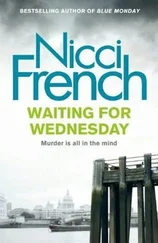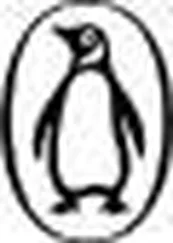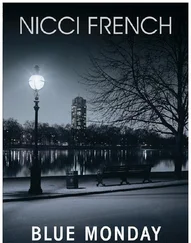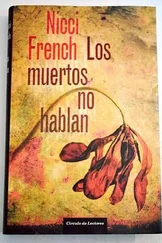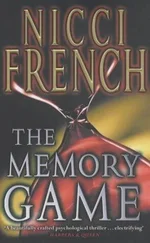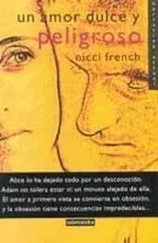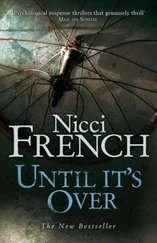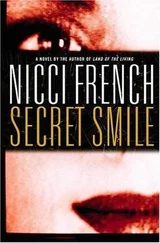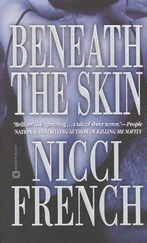‘When are you doing it?’
‘I’ve got some meetings this morning. Some time in the afternoon.’
‘Can I come? I’d like to see it.’
‘You’ve seen it already, haven’t you?’
‘I saw it from the outside, when we looked at the alley, but I never went in.’
‘All right,’ said Karlsson. ‘You can join us.’
‘Could I see it before they start packing things up?’
‘I’ll meet you there at half past ten.’
The phone rang again.
‘You ran away.’
‘I didn’t run away. I needed to get away. I needed to think.’
‘About how you’d made a mistake.’
‘No, not about that.’
‘So I’ll see you.’
‘Yes, you’ll see me.’
Frieda didn’t go straight to the house. She took the Underground and then the Docklands Light Railway across the Isle of Dogs and under the river to the Cutty Sark . She got out and walked west until she was standing outside the Wyatts’ house. There was a light on inside. She turned towards the river. The tide was high, the water pitching against the Embankment. A tourist boat chugged past. Two children waved at her. She continued walking along the bank, first past the other apartments, then a yacht club, fenced off, the entrance to a wharf with a uniformed man sitting in a booth. Guarding what? Frieda thought. He looked at her suspiciously. He stepped outside and walked towards her. ‘Can I help you?’ he said.
‘Are you always here?’ she asked.
‘Why do you want to know?’
‘I just wondered.’
‘I’m not always here,’ he said. ‘But someone is. If you want to know.’
‘Thank you,’ said Frieda, and continued westwards, past the railings of a primary school and the site of a warehouse being demolished that was entirely boarded up and inaccessible. And then she reached Howard Street and found herself standing outside the house where it had all started.
‘Yes,’ she said to herself. ‘Yes.’
Frieda stared at Michelle Doyce’s living room, then noticed that Karlsson was looking at her and smiling.
‘What?’ she said.
‘It’s like the sea,’ he said. ‘People can describe it to you, but you have to go and look at it yourself. Quite a collection, isn’t it?’
Frieda was almost dazed by the room, which was somehow both obsessively neat and horribly chaotic. She saw shoes, stones, feathers and bones of birds, newspapers, bottles, silver wrappers folded into squares, glass jars, cigarette butts, dried leaves, dried flowers, little pieces of metal that looked as if they had been salvaged from machines. There were beads and clothes and assorted cups and glasses. Where even to begin?
‘I’d like to see Jasmine Shreeve do one of her programmes here,’ said Karlsson.
‘What do you mean?’
‘That programme where a psychiatrist judges you by looking at your home? This one would give them a bit of a fright.’ His tone changed. ‘Sorry. I know it’s not funny.’
‘Actually, I sometimes think I might learn more about my patients by looking at where they live than listening to what they say.’ She shook her head and said, almost to herself, ‘I should have come here before. This is like looking inside Michelle Doyce’s head.’
‘Which is not a pretty sight?’ said Karlsson.
‘Poor woman.’
‘Have you seen things like this before?’
‘I don’t really deal with acute psychiatric disorders,’ said Frieda, ‘but obsessive hoarding is quite a common symptom. You must have heard about people who can’t throw anything away, newspapers, their own shit.’
‘All right, all right,’ said Karlsson. ‘That’s too much information. Being here is bad enough without hearing about things that are even worse.’
Frieda felt herself flush, as if she were going to faint. But the feeling seemed to be in her brain. When she spoke, it was in a whisper: ‘I don’t like this case.’
Karlsson looked at her curiously. ‘You’re not supposed to like it. It’s not a night at the theatre.’
‘No,’ Frieda said slowly. ‘I don’t mean that. It’s just that nothing seems to fit. We’re standing in a crime scene that isn’t really a crime scene. The victim seems to be the main perpetrator. And the motives are obvious, but they don’t seem enough. And then there’s Janet Ferris. She must have been killed because she saw something. Let’s say, for the sake of argument, that it was Frank Wyatt. Why would he have gone there? We’d already connected him to Poole.’
She shook her head.
‘I don’t feel we’re seeing the whole story. I keep thinking about Beth Kersey. Poole used people. He tried to change Mary Orton’s will but failed. He took some money from the Wyatts. Probably he was going to steal from Jasmine Shreeve. What was he going to do with Beth Kersey? Have you had any luck getting her medical details?’
‘That’s a dead end,’ said Karlsson.
‘It’s not. It’s crucial.’
‘We can access her medical records if she’s a suspect or a victim of a crime. At the moment she is an adult who hasn’t even been reported missing. But for the moment we’re here because you said you wanted to be here.’
‘All right, all right,’ said Frieda, trying to clear her mind. ‘So, the idea is that Michelle Doyce found Robert Poole’s body outside in the alley by the house. She brought him in and stripped him and washed his clothes and folded them up, in the process probably removing any hair or fibres.’
‘That’s right.’
‘She tried to help,’ said Frieda. ‘She saw Robert Poole as someone in trouble and she tried to be a Good Samaritan but in the process she ruined things.’
‘Exactly. She couldn’t have done a better job of getting rid of the evidence if she’d done it deliberately.’
Frieda looked around, trying to take it all in. The sheer mass of it made her head ache. ‘This really is like her mind,’ she said. ‘When most of us go out we bring back things in our memory or maybe we take a photo. But she just brought the things back.’
‘She was a real magpie,’ said Karlsson.
‘Yes.’ Frieda frowned. ‘Yes, she was.’
‘You make that sound interesting. It’s just what you say about people who collect things.’
Frieda looked at the window. The day had gone grey. ‘Are there lights?’
Karlsson went to the doorway to switch on the ceiling light, and then, with his foot, an old standard lamp in the corner. Frieda stepped forward and looked at it more closely. Suspended from short pieces of thread around the frame that held the lampshade were what looked like beads and pieces of glass. Frieda peered at them one by one. ‘Magpies don’t collect just anything,’ she said. ‘They collect sparkly things.’
‘I don’t know much about them,’ said Karlsson. ‘When I see them, they’re mainly pecking at dead pigeons.’
Frieda took a new pair of surgical gloves from her pocket and put them on.
‘Are you still buying those yourself?’ said Karlsson. ‘We can get them for you.’
‘Remember what Yvette said about Michelle Doyce? That she was the saddest woman she’d ever met? This room is like that. Those dead bits of bird, the newspaper, the old cigarette butts smoked by other people. They contain a sadness that I don’t even want to think about. But the sparkly things are different. They’re pretty.’
‘If you like that kind of thing.’
‘Come and look at these.’
‘Really?’
‘Yes.’
Karlsson stepped forward.
‘What do you see?’ she asked.
‘Bits of glass.’
She cradled one of the other little dangling objects in her gloved hand. ‘What about this one?’
‘It’s a bead.’
‘Describe it to me.’
Читать дальше


